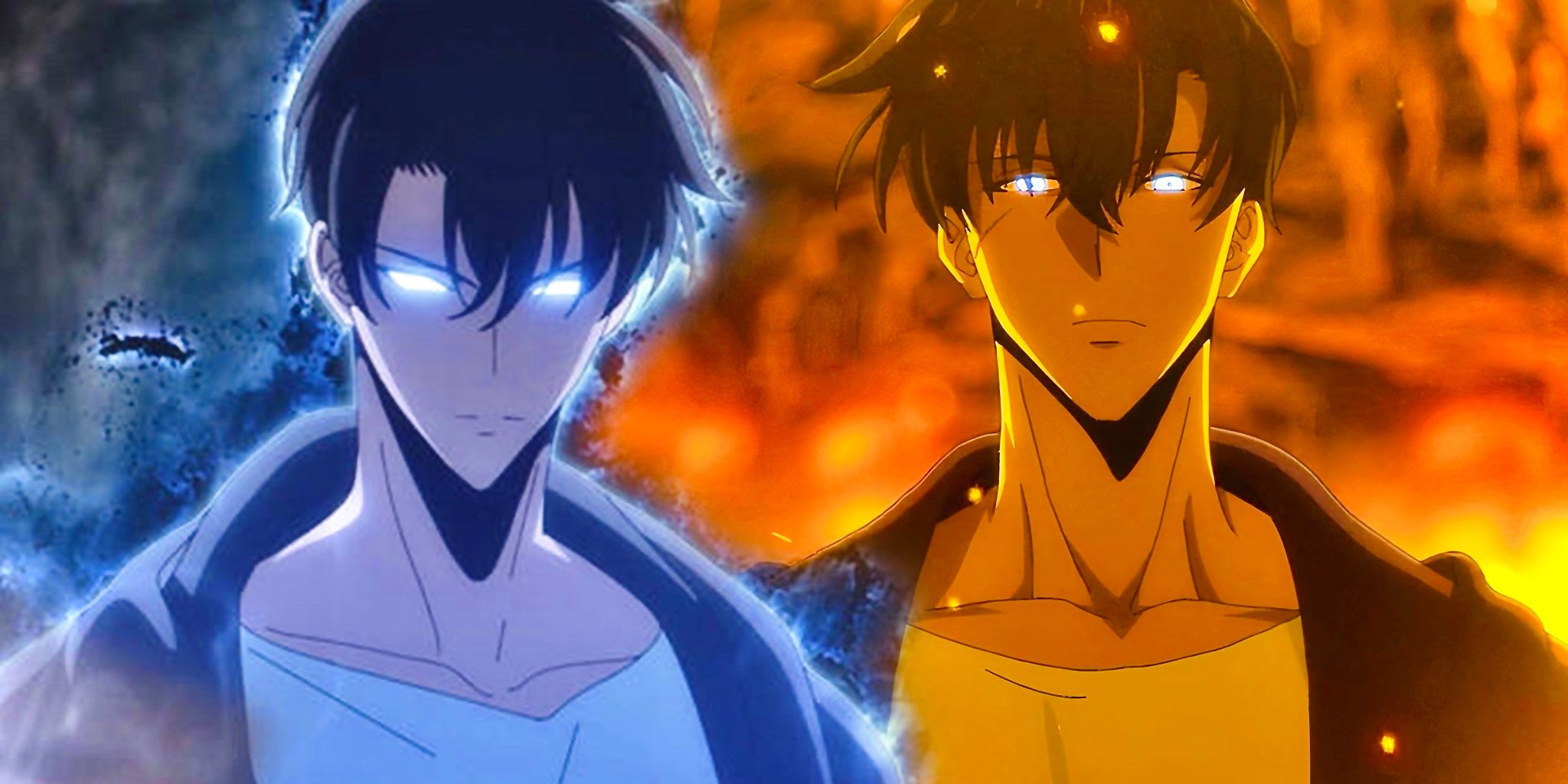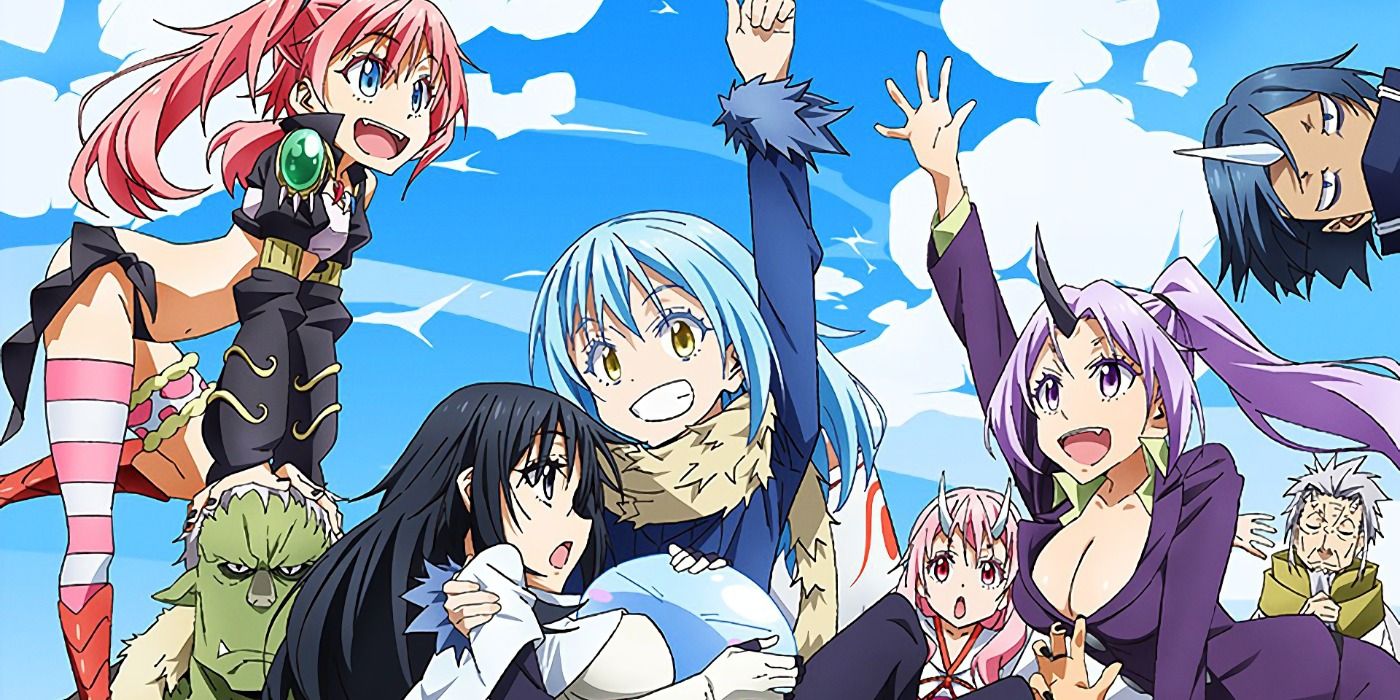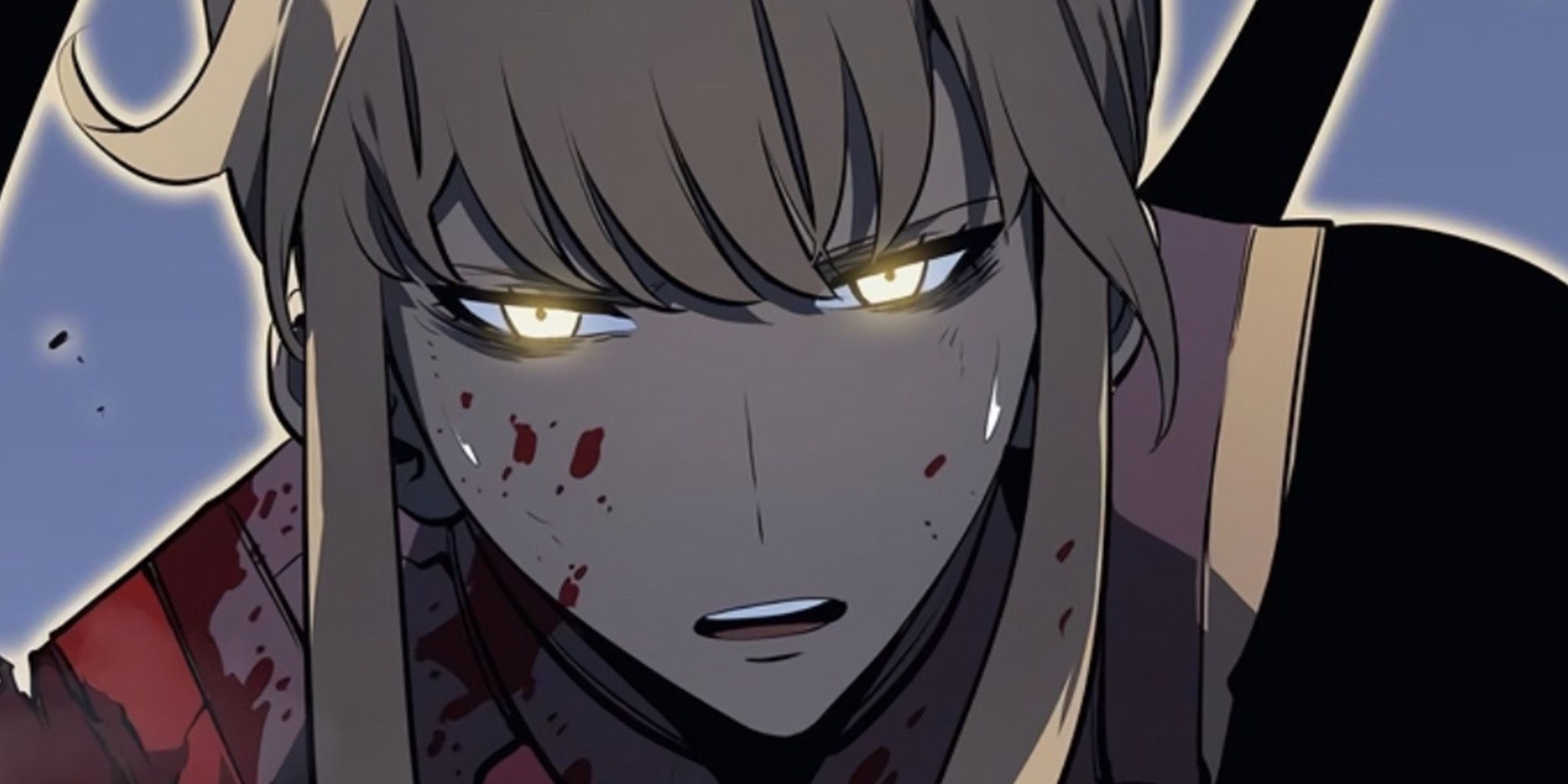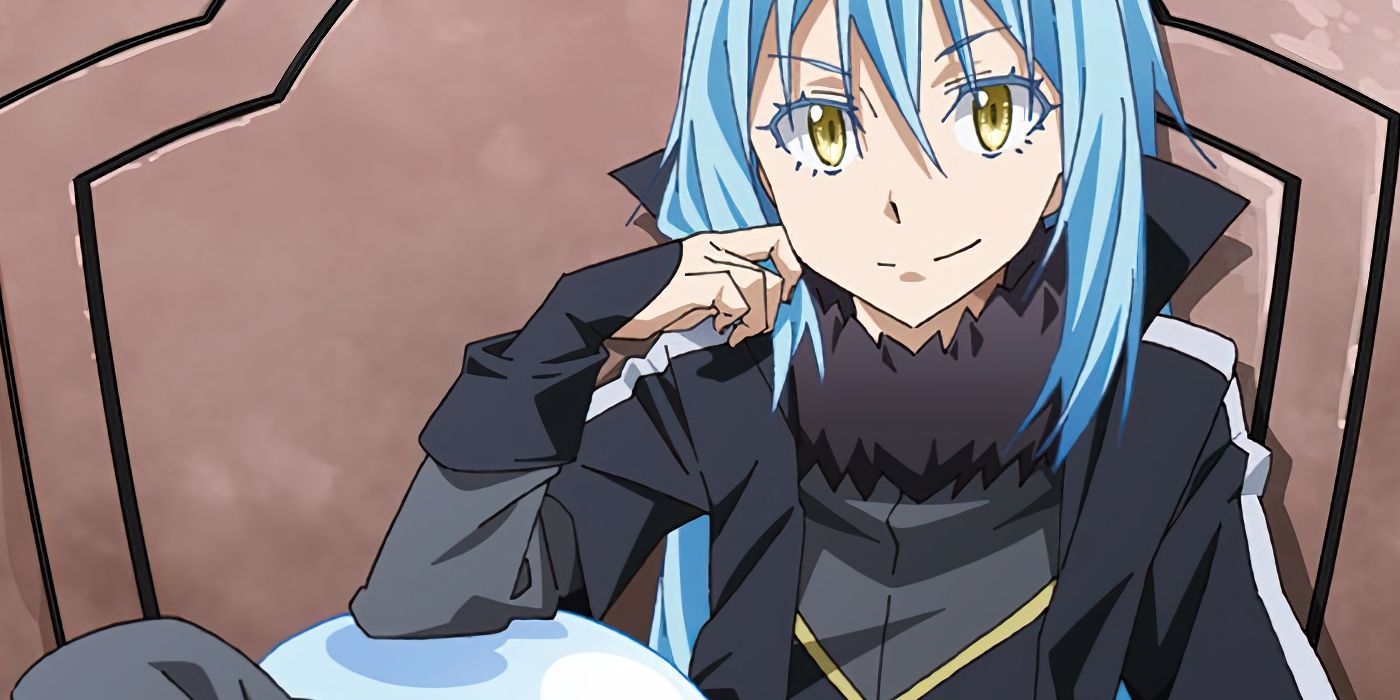
Popular fantasy action anime like Solo Leveling, Dandadan, and Frieren: Beyond Journey’s End are currently leading the way, but Tensura (short for That Time I Got Reincarnated as a Slime) is a strong contender. Many fans feel Tensura revitalizes the isekai genre and actually surpasses Solo Leveling in quality. While Solo Leveling is currently very popular, a closer look reveals how Tensura stacks up as a superior series.
Although Solo Leveling isn’t a traditional isekai anime, it shares some similarities with the genre—like a protagonist who feels like a self-insert, lots of monsters and heroes, and a story that could go in many directions. This makes it reasonable to compare Solo Leveling to Tensura as two of the most popular fantasy anime of the last ten years. However, Tensura is currently more successful. It’s leading the charts for isekai anime, and it’s strong enough to challenge Solo Leveling’s popularity, preventing it from becoming complacent.
Solo Leveling Steals From the Best Isekai Anime’s Playbook




Despite sharing several similarities, there’s no proof that Solo Leveling directly copied ideas from That Time I Got Reincarnated as a Slime (Tensura). Many fans actually believe Solo Leveling is more inspired by Hunter x Hunter, as both feature powerful hunters battling monsters within organized guilds. While Solo Leveling didn’t plagiarize Tensura, the two series clearly have parallels, and some viewers feel Tensura executed those ideas more effectively. Tensura began as a web novel in 2013, two years before Solo Leveling‘s novel debuted. Now that both have anime adaptations, comparisons are inevitable, and audiences often notice how Solo Leveling echoes elements from Tensura.
Many fantasy stories feature characters who die and are reborn with incredible power. For example, one series tells the tale of a businessman killed and reincarnated as a slime, while Solo Leveling involves a man who uses a special System to come back to life as a much stronger version of himself. Both stories share a common theme: an ordinary person dies and gets a second chance as someone extraordinarily powerful. This ‘power fantasy’ is popular in anime, so it’s important to execute it well. Solo Leveling does a good job with its protagonist’s powerful presence and his solo adventures, but Tensura arguably handles this trope even more effectively with its character, Rimuru Tempest.
Jinwoo is a strong fighter, but Rimuru from Tensura is on another level – possessing ten times the power and abilities. While raw power isn’t enough to make a hero truly captivating, Tensura manages it through the unique ‘Predator’ skill. This skill explains how Rimuru gains new powers within the story, and conveniently allows him to constantly grow stronger. As a slime that consumes everything, he absorbs the powers and traits of what he devours, making his increasing strength believable. Beyond just power, Rimuru cleverly utilizes his diverse abilities – from telepathy to coordinate with allies, to intimidating enemies with new forms, and even combining spells – solidifying his place as the most powerful spellcaster in the isekai genre.
Both Solo Leveling and Tensura are enjoyable fantasy action anime featuring kind-hearted main characters who steadily unlock incredible power and strive to improve the world around them. While both shows excel in many ways, Tensura generally does a better job. Solo Leveling‘s strongest point is its impressive animation, particularly during action scenes with Jinwoo, though Tensura‘s visuals are also quite good. When it comes to teamwork, Tensura‘s Rimuru builds a strong and varied group of monster allies, creating a more compelling dynamic than Jinwoo’s Shadow army in Solo Leveling.
Both anime feature characters exploring different worlds – Rimuru travels to various nations within his new world, and Jinwoo delves into new dungeons. However, Tensura does this more effectively. It also excels in both humor and emotional depth, especially when it comes to personal motivations. While it’s great to see Jinwoo fight for his family, it’s even more compelling to watch Rimuru dedicate himself to protecting his many friends and the city of Tempest.
Incredible Worldbuilding Elevates Reincarnated as a Slime Above Other 2010s Anime
Anime like One Piece demonstrate how important detailed worldbuilding is for long-running fantasy series, where the setting almost becomes a character itself. One Piece’s islands are all unique and memorable, and the world of Tensura is just as impressive. Solo Leveling, while offering some variety in its dungeons and monsters, doesn’t quite reach that level of immersion. Seeing Jinwoo explore snowy forests or ruined cities was enjoyable, but it doesn’t compare to the depth of Tensura’s world. Tensura currently has an edge, partly because it has more episodes and fully focuses on exploring these fantastical worlds. However, Solo Leveling is incredibly popular and naturally invites comparison to series like Tensura.
While Solo Leveling features a wide range of monsters and environments in its dungeons, these settings don’t leave a lasting impression. So far in the anime, the dungeons feel like simple arenas for Jinwoo’s fights, rather than fully realized worlds. This gives Solo Leveling a video game-like quality, where each dungeon is just a space for action. In contrast, Tensura excels at building a rich and meaningful world. It starts slowly, but gradually expands, establishing distinct nations with unique histories, personalities, and cultures. Fans easily recall places like the thriving Armed Nation of Dwargon and the ogre tribe inspired by Japan. Tensura‘s monster races aren’t just different species; they’re complex creatures often misunderstood and unfairly treated by humans, adding depth to the world.
Unlike Solo Leveling, where the protagonist simply battles and recruits monsters, Tensura builds a world where humans and monsters truly coexist. Rimuru aims to be a leader who fights for monster rights, seeing them as equals rather than just enemies. He’s a hopeful politician who wants to create a future of cooperation and acceptance between all groups. This focus on overcoming prejudice is a particularly strong and important part of Tensura, especially when compared to other fantasy anime, including Solo Leveling. Seeing characters understand each other is always good, but Tensura takes it to another level by showing entire nations and monster communities learning to live together, which makes the message even more powerful.
That Time I Got Reincarnated as a Slime is the Anime of its Decade
As an anime fan, it’s easy to see why Tensura is so good – and honestly, why it surpasses Solo Leveling in many ways. The world is incredibly detailed, the show emphasizes accepting others, the fights are visually exciting, and Rimuru is just a fun character to watch. But if I had to pick one thing that truly makes Tensura stand out, and maybe even the best anime of the last decade, it’s how it explores the idea that with great power comes great responsibility.
Many action and fantasy anime, especially those in the ‘isekai’ genre, focus on how a hero’s power—whether magical or through fighting skills—affects both themselves and the world around them. It’s common to see the main character grow stronger and reshape things to their liking, offering viewers a sense of wish fulfillment. Jinwoo, from the series, has been doing this through constant power-ups, building his Shadow Army, and changing the established rules for Hunters in dungeons. While Jinwoo is accountable for his own development and the well-being of those who depend on him, the scale of his influence doesn’t quite reach the level of Rimuru’s actions in Tensura.
Rimuru doesn’t just need to master his incredible abilities and protect his allies; he’s also committed to building a better future for all monster races. He’s promised ogres, orcs, lizard folk, and others a place in a more accepting world, and he plans to achieve this through both peaceful negotiations and, when necessary, strength. As he gains power and becomes a Demon Lord, it’s also crucial that he remains in control of himself.
Fans might remember when Rimuru nearly succumbed to darkness while seeking revenge for his lost companions, a pivotal moment on his path to becoming a Demon Lord. This near-fall into villainy ultimately made his decision to choose the righteous path even more impactful. Unlike Rimuru, Jinwoo hasn’t faced such a moral challenge in the dungeons, which makes his strength feel less like a burden and more like a simple advantage in combat. Rimuru’s power comes equally from his magical abilities and his strong moral compass, and this balance is a key reason why Tensura is considered one of the best fantasy anime of the last ten years.
Read More
- Deathstroke Takes On An Epic Sci-Fi Villain In This Brutal Crossover Event
- Spider-Man 4 Might Feature [Spoiler]’s MCU Debut — Report
- Евро обгонит швейцарский франк? Эксперты раскрыли неожиданный сценарий
- Доллар обгонит гривну? Эксперты раскрыли неожиданный сценарий
- Золото прогноз
- Прогноз нефти
- How Many Episodes Are in Futurama Season 13 & When Do They Come Out?
- Tim Burton’s Lost Jurassic Park Movie Is Sci-Fi’s Most Frustrating Missed Opportunity
- Dwayne Johnson Was Super Stressed The Morning Golden Globes Noms Came Out. How Ryan Coogler Made His Day
- 6 Years Ago, Star Wars Debuted Its Most Wasted Villain In Franchise History
2025-11-07 00:42